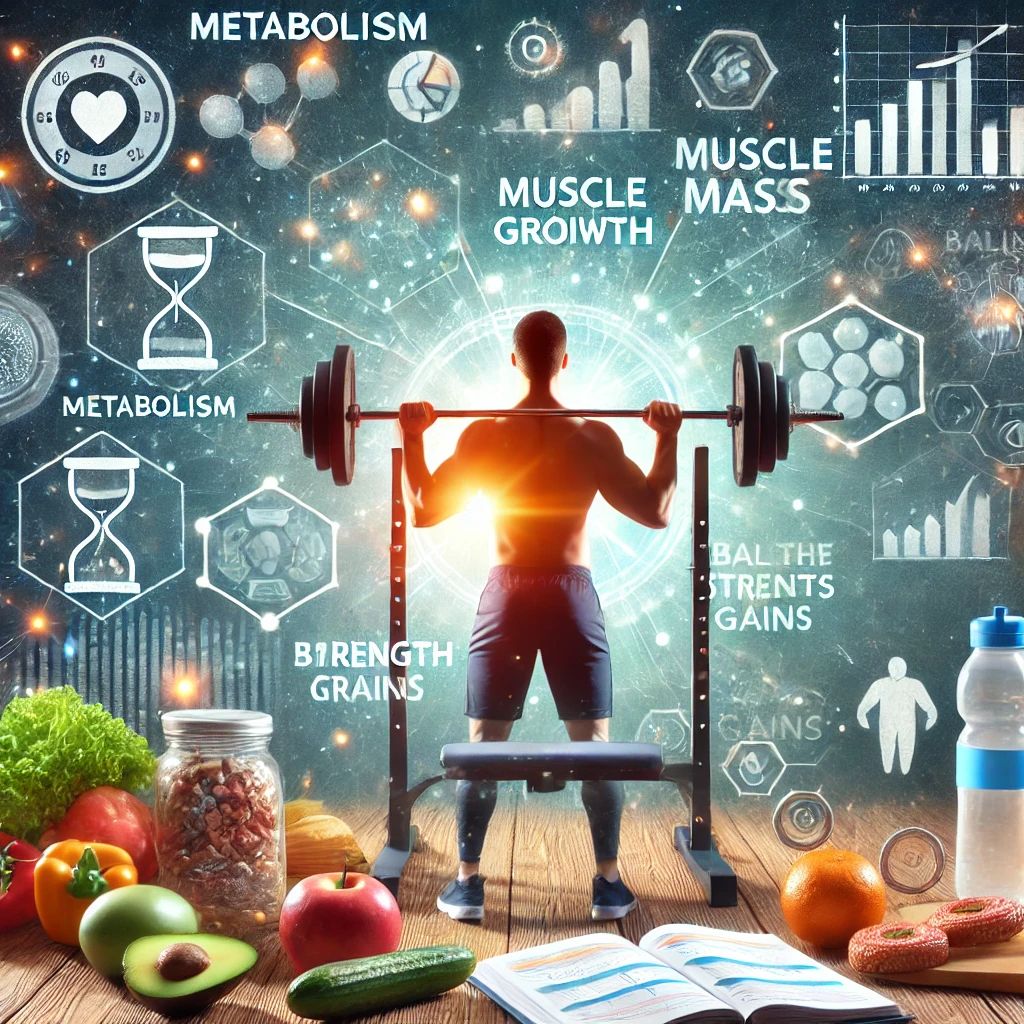
Why Muscle Mass Matters in Weight Loss
When most people think of improving their health and fitness, losing weight is often the primary goal. While weight loss can improve overall health, focusing solely on shedding pounds may not give you the long-term benefits you're aiming for. Building muscle mass is just as important as losing weight because it helps create a strong, healthy body that is more efficient at burning calories and maintaining weight loss. Here’s why you should focus on both losing fat and gaining muscle.
1. Increased Metabolism
Muscle mass directly impacts your metabolism, which plays a key role in weight loss and weight maintenance:
Muscle burns more calories: Unlike fat, muscle tissue is metabolically active, meaning it burns calories even when you're at rest. The more muscle you have, the more calories your body burns throughout the day, helping you maintain a healthy weight.Boosts resting metabolic rate: Gaining muscle increases your resting metabolic rate (RMR), which is the number of calories your body burns at rest. This makes it easier to stay in a calorie deficit, which is necessary for weight loss, while also supporting long-term maintenance of your weight.2. Improved Body Composition
Losing weight doesn’t necessarily mean you’ll achieve a toned, fit appearance:
Fat loss vs. muscle gain: When you lose weight, especially through crash diets, you may lose muscle along with fat. This can lead to a "skinny fat" appearance where your body weight decreases, but you lack muscle definition and strength.More toned physique: Building muscle while losing fat results in a leaner, more toned appearance. Muscle adds shape to your body, giving you a fit, athletic look rather than just being smaller in size.3. Enhanced Strength and Functionality
Muscle mass is essential for everyday activities and overall health:
Improves strength: Strong muscles help you perform daily activities more easily, from lifting heavy objects to walking up stairs. Having more muscle makes these tasks feel less tiring and reduces the risk of injury.Better posture and balance: Muscle strength supports your joints, improves posture, and enhances balance. This is especially important as you age, as muscle loss (sarcopenia) can lead to decreased mobility and a higher risk of falls.Boosts endurance: More muscle means you can work out harder and for longer periods, leading to greater fitness improvements. Strength training also improves cardiovascular health when combined with aerobic exercise.4. Supports Long-Term Weight Maintenance
One of the biggest challenges after losing weight is keeping it off, and muscle mass can help:
Prevents weight regain: Building muscle helps prevent weight regain by boosting metabolism and increasing calorie burn. This means you can eat more without gaining fat, as your body uses those extra calories to maintain muscle mass.Sustainable fat loss: Combining strength training with a healthy diet promotes fat loss while preserving muscle. This leads to sustainable, long-term weight maintenance rather than short-term weight loss followed by weight gain.5. Improves Mental Health and Confidence
Exercise and muscle building have positive effects on mental well-being:
Boosts self-confidence: Seeing your body become stronger and more defined through muscle gain can significantly improve your self-esteem and body image. This newfound confidence often translates to other areas of life, making you feel more empowered.Reduces stress and anxiety: Resistance training and other forms of exercise have been shown to reduce stress, anxiety, and symptoms of depression. The endorphins released during exercise improve your mood and mental clarity.6. Prevents Muscle Loss During Weight Loss
When you focus only on losing weight, especially through extreme dieting, you risk losing valuable muscle mass:
Avoid muscle loss: When you lose weight rapidly or without strength training, your body breaks down muscle tissue for energy, leading to muscle loss. This decreases metabolism and makes it harder to maintain your weight in the long term.Combine weight loss with strength training: By incorporating resistance training into your weight loss routine, you can preserve and build muscle mass, ensuring that the weight you lose is primarily fat, not muscle.7. Supports Healthy Aging
Maintaining and building muscle mass becomes even more important as you age:
Combats age-related muscle loss: After the age of 30, people naturally lose muscle mass (sarcopenia), which can lead to decreased strength, mobility issues, and a higher risk of falls and fractures. Strength training can help counteract this natural decline in muscle mass.Maintains independence: Strong muscles support mobility and functionality, helping you stay active and independent as you age. Regular resistance training ensures that you can continue to perform daily tasks with ease.Conclusion: The Importance of Muscle Mass in Weight Loss
Losing weight is a great goal for improving overall health, but it’s important to remember that muscle mass plays a crucial role in achieving and maintaining long-term results. Building muscle boosts metabolism, improves body composition, enhances strength and functionality, and prevents weight regain. By combining strength training with a healthy diet, you can achieve a balanced approach to weight loss that supports both fat loss and muscle gain, resulting in a stronger, healthier body.
The article was prepared by Ira Levovich.



